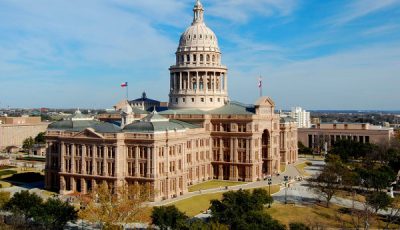Supreme Court Agrees to Hear Challenge to Texas Age-Verification Law
 WASHINGTON, D.C. – The United States Supreme Court has granted the petition for a writ of certiorari in Free Speech Coalition v. Paxton, the FSC’s challenge to Texas’ age-verification law, commonly referred to as “HB 1181.”
WASHINGTON, D.C. – The United States Supreme Court has granted the petition for a writ of certiorari in Free Speech Coalition v. Paxton, the FSC’s challenge to Texas’ age-verification law, commonly referred to as “HB 1181.”
In the petition for the writ, the FSC and their co-plaintiffs wrote that the question presented is “whether the court of appeals erred as a matter of law in applying rational-basis review to a law burdening adults’ access to protected speech, instead of strict scrutiny as this Court and other circuits have consistently done.”
The plaintiffs argued that the appellate court’s decision “openly defies” precent, noting that HB 1181 “requires any website that publishes content one-third or more of which is “harmful to minors”—a broad category that includes virtually any salacious content—to verify the age of every user before permitting access.”
“While purportedly seeking to limit minors’ access to online sexual content, the Act imposes significant burdens on adults’ access to constitutionally protected expression,” the plaintiffs added in the petition. “Of central relevance here, it requires every user, including adults, to submit personally identifying information to access sensitive, intimate content over a medium – the Internet – that poses unique security and privacy concerns.”
“The district court rightly applied strict scrutiny to the age-verification provision and entered a preliminary injunction after finding it likely would not meet that standard,” the plaintiffs added. “But a divided Fifth Circuit panel vacated that injunction, reasoning that the age-verification provision’s burdens on adults’ First Amendment rights are subject to only rational-basis review.”
In a statement released Tuesday, the FSC said the organization is “pleased that the Supreme Court has decided to review our case, recognizing the importance of the issues raised by our Texas challenge” and that they “appreciate the opportunity to make our case before the Court.”
“Despite proponents’ claims, online age verification is simply not the same as flashing an ID at a check-out counter,” said FSC Executive Director Alison Boden. “Sexual expression is the canary in the coal mine of free speech, and we look forward to defending the rights of all Americans to access the internet privately and free from surveillance.”
In the statement, FSC noted their petition was “supported by amicus briefs submitted by the International Centre for Missing and Exploited Children; the Foundation for Individual Rights and Expression; the Electronic Frontier Foundation and Woodhull Freedom Foundation; and the American Booksellers for Free Expression, Association of American Publishers, Inc., Authors Guild, Inc., Comic Book Legal Defense Fund, and Freedom to Read Foundation.”
It’s unclear precisely when the Supreme Court will hear oral argument in the FSC case. By law, the Court’s term begins on the first Monday in October and runs through the Sunday before the first Monday in October of the following year. The court hears arguments from October through April.
Supreme Court image by David Lat













